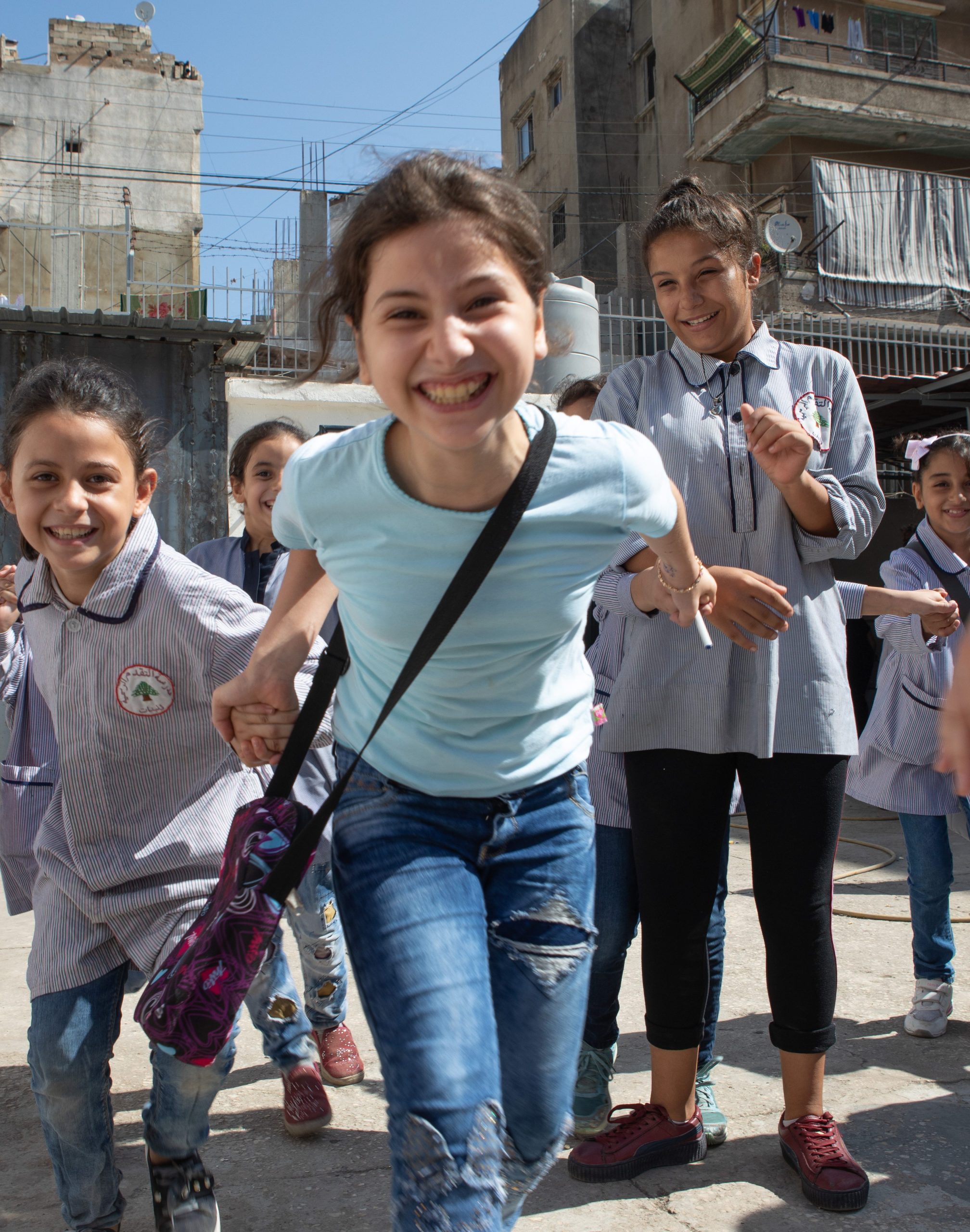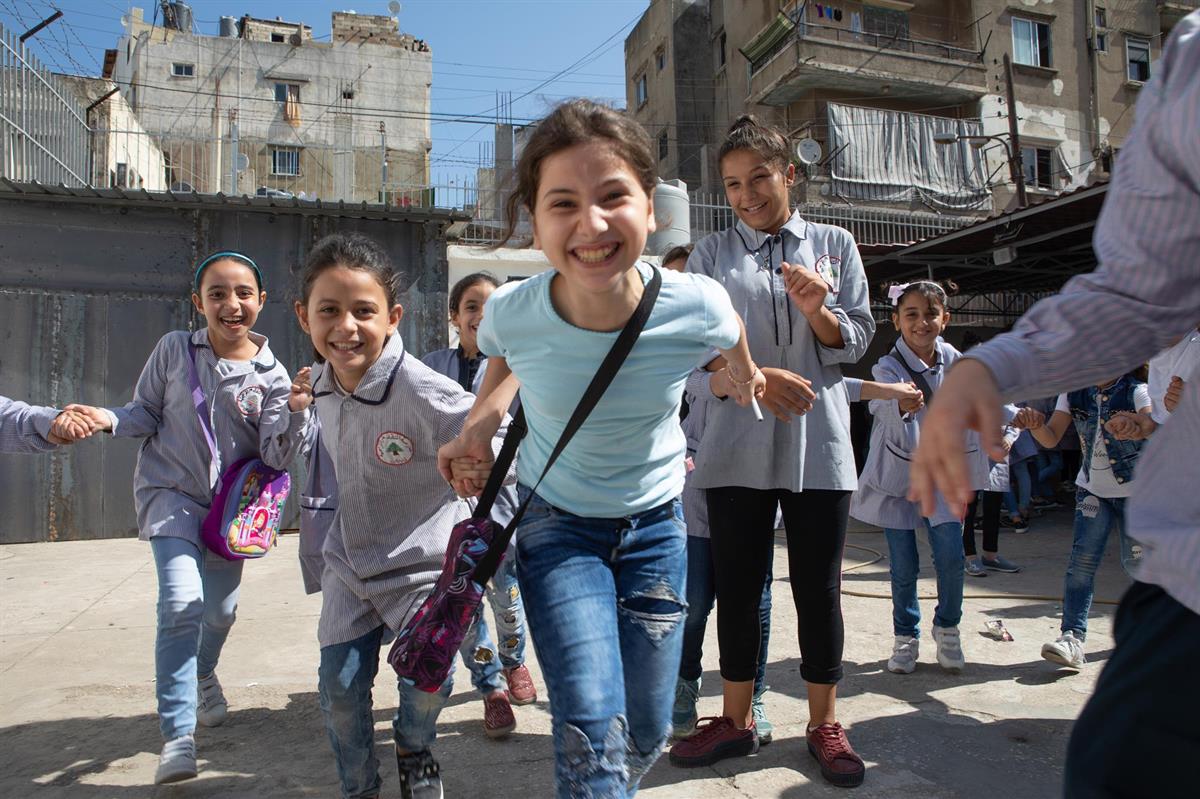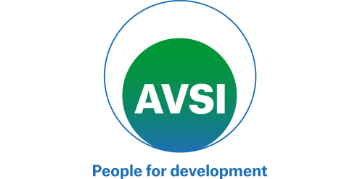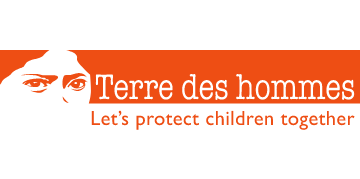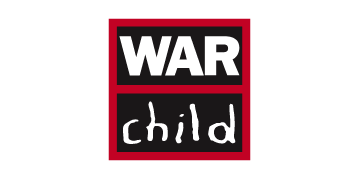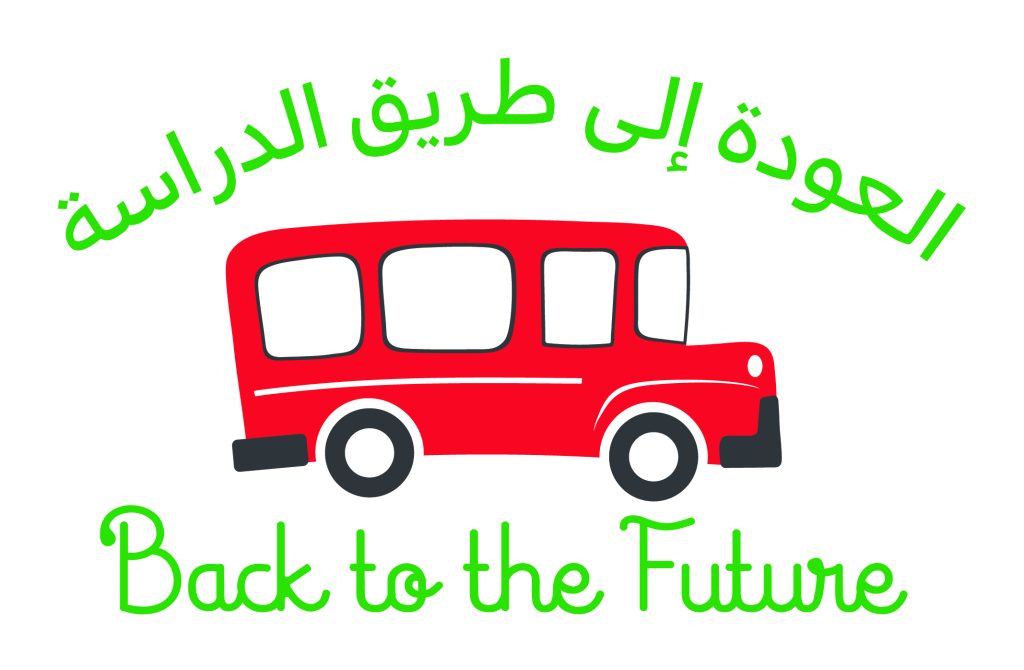The “Back to the Future” project contributes to create a safe, sustained, and inclusive access to quality education and promotes well-being for vulnerable out-of-school children in Lebanon, with the specific goal to promote successful transition into formal education.
The project reaches out-of-school refugee vulnerable boys and girls through outreach work and regulates non-formal education for the children to gain the relevant skills, to enter and progress in education.
The intervention focuses on the preparation, completion, and referral of children to formal education with a robust teachers’ professional development approach.
Caregivers, teachers, and communities are engaged to establish a protective environment for children and support their educational success. Through an integrated approach, all learners are provided with targeted psychosocial support activities and access to case management and protection services.
The Donor
The European Union (EU) and its Member States are the world’s leading donor of humanitarian aid. EU humanitarian action embodies the principle of solidarity, as laid down in the Lisbon Treaty, which states that the EU will provide assistance, relief and protection for victims of natural and human-made disasters and encourage cooperation between Member States to this aim.
Relief assistance is an expression of European solidarity with people in need around the world. Through its Civil Protection and Humanitarian Aid Operations department, the EU helps millions of victims of conflict and disasters every year. With headquarters in Brussels and a global network of field offices, the EU provides assistance to the most vulnerable people on the basis of humanitarian needs.
The first three phases of the Back to the future project were financed by the EU Regional Trust Fund in response to the Syrian crisis MADAD. The fourth and fifth phases have been financed by the Directorate-General for European Civil Protection and Humanitarian Aid Operations (DG ECHO).
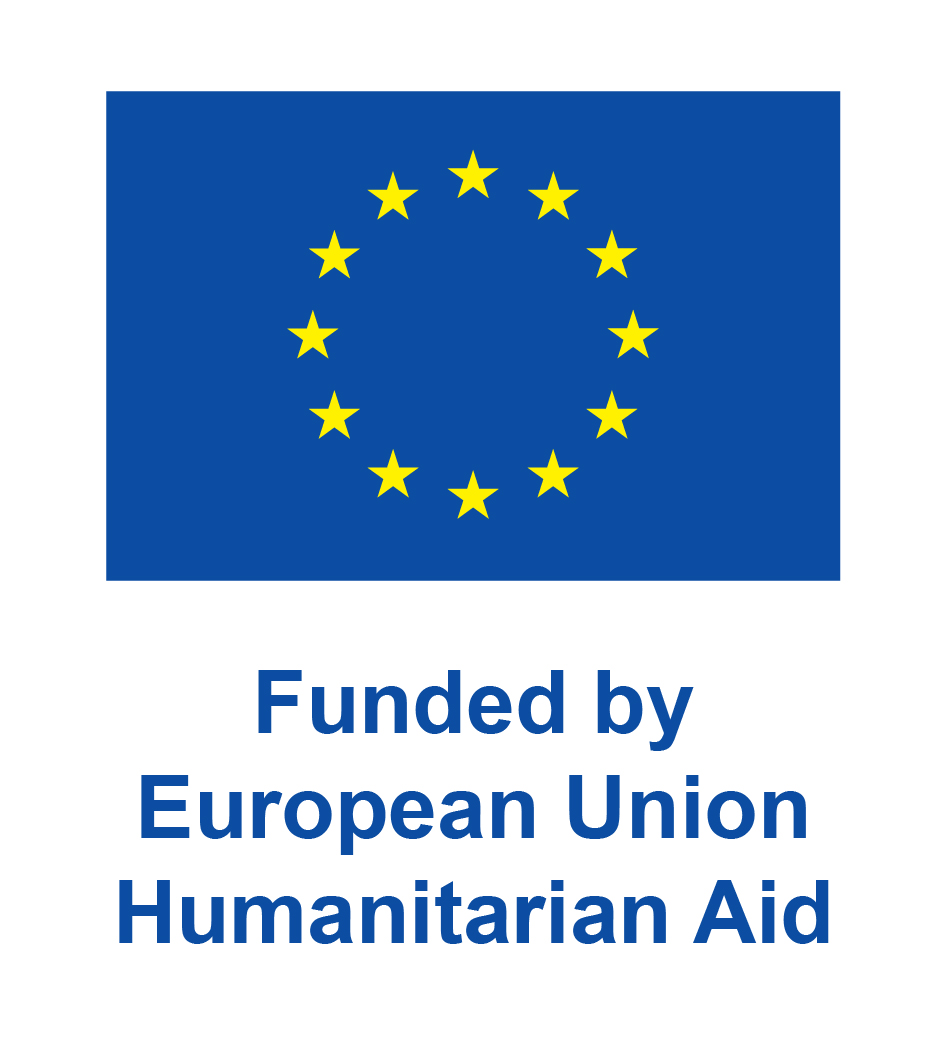
The official website of the project
Phases
PHASE I DECEMBER 2016 – JUNE 2019
School readiness, inclusion and retention of children impacted by the Syrian crisis in Lebanon and Jordan. Over a three-year period (2016-2019), the ‘Back to the Future’ project provided educational support for 21,700 local vulnerable and refugee children, and ensured the upgrading of 22 public schools across Lebanon and Jordan.
PHASE II JUNE 2019 – APRIL 2022
The “Back to the Future II” project promoted enrolment and improveds retention in the formal education system for refugee children impacted by the Syrian Crisis and vulnerable children from host communities in Lebanon. Over the course of three years, more than 33,000 vulnerable Lebanese and Syrian children across the country .
In Lebanon, and since the outbreak of the COVID-19 pandemic, and in line with the Government’s decision to shut down all educational institutions, non-governmental organizations (NGOs) played a fundamental role in finding new and innovative solutions to face the disruption of educational services, by complementing the efforts of formal education institutions in facing these new challenges. One successful example of mainstreaming distant learning is represented by the Back to the Future project.
PHASE III MAY 2022 – SEPTEMBER 2022
Back to The Future (BTF) consortium (AVSI, Terre des Hommes Italy, and War Child Holland) ensured a smooth transition and continuity of the education programs from phase 2 to phase 3. The implementation started in May 2022 and ended in September 2022. In phase 3, the project is part of the Haqqi Consortium funded by the European Union, through the EU Regional Trust Fund. BTF contributed to the overall objective of the consortium to improve the learning outcomes and wellbeing for vulnerable children and youth, with or without disabilities, supporting them to reach their full potential. The project addressed the significant gap in education for vulnerable children through the mainstreaming of child protection into education.
PHASE IV JULY 2022 – OCTOBER 2023
In the fourth phase of the project Back to the Future, AVSI Lebanon staff continued its work of education and preparedness of refugees and vulnerable children who are out of formal school to complete their studies and pass from a non-formal education program to a formal one. The teachers were encouraged to adopt a professional development approach to promote academic preparedness for students and their transition from informal to formal education. Caregivers, teachers, and communities were all engaged to ensure a protective environment for children and support their educational success. Due to its integrated approach, all learners have received targeted psychosocial support activities and access to case management, inclusion, and protection services.
Among its goals, the program aimed to achieve outreach and community mobilization activity, child protection and case management support, referral of vulnerable boys and girls to formal education, Psychosocial Support (PSS), non-formal educational programs - including Early Childhood Education (ECE) and Basic Literacy and Numeracy (BLN), awareness activities for caregivers, assistive devices and therapy services for children with disabilities, identification and referrals of beneficiaries at risk, and development for teachers on inclusive education methodologies.
In this fourth edition, Back to the Future has reached 2.362 kids with non-formal education programs, 4.801 students and caregivers with psychosocial support activities, 67 teachers with courses for professional development, 160 children referred to specialized services, and 249 children who received case management services. The project covered several vulnerable locations across the six governorates of Nabatyieh, South, Beqaa, Mount Lebanon, Beirut, and Baalbek.
PHASE V - November 2023 - April 2025
Protective environments and educational opportunities for vulnerable out-of-school children in Lebanon.
The "Back to the Future V” contributes to create a safe, sustained, and inclusive access to quality education and promote wellbeing for vulnerable out-of-school children in Lebanon.
The project will cover a wide catchment area, targeting vulnerable locations across 6 governorates in Lebanon, and will reach out-of-school children through regulated non-formal education to gain the relevant skills to enter and progress in education.
Caregivers, teachers and communities will be engaged to establish a protective environment for children and support their educational success. Through an integrated approach, all learners will be provided with targeted psychosocial support and access to case management.
The program is funded by the European Union Humanitarian Aid, and implemented by AVSI and Terre des hommes Italy in Lebanon in partnership with Association Nabad for Development, Sawa for Development and Aid, Mouvement Social, Fraternity Association, and USPEaK, and in collaboration with Bqosta Association, Al Moasat Association, and Phoenix Forum.
Targets
- 2,473 – Children attending and completing NFE programs.
- 1,731 – Caregivers engaged in PSS and support intervention.
- 95 – Teachers supported through professional development.
- 808 – Children benefitting from CP Case Management.
- 114 – Children with disabilities included in the program through provision of specialized services.
Activities
- Outreach, Back to School and Community mobilization activities.
- Community-based Early Children Education (CB-ECE).
- Basic Literacy and Numeracy program (BLN).
- Professional development for teachers on child -entered pedagogy, inclusion and qualitative education methodologies.
- Provision of child protection case management support and response to children and families with protection risks.
- Provision of structured PSS activities for children.
- Provision of orientation, information sessions, and awareness activities for caregivers.
- Provision of supplies, assistive devices and therapy services for children with disabilities to promote inclusive education.
- Referral to Formal Education.
PHASE VI - May 2025 – June 2027
The Phase VI of Back to the Future project is implemented in partnership with several local organizations, including Association Nabad for Development, Sawa for Development and Aid, Mouvement Social, Fraternity Association, USPEaK, and HAND. It collaborates with a number of community-based organizations such as Bqosta Association, Al Moasat Association, Phoenix Forum, Oxygen, and the Awareness and Consolation Association.
The project aims to enhance access to inclusive, quality education and protection services for the most vulnerable refugee girls and boys in Lebanon. It focuses on supporting out-of-school refugee children who have been excluded from education for extended periods.
The initiative also engages caregivers and education personnel to create a supportive environment for children’s learning and development. Through integrated interventions in education and child protection, the project seeks to improve children’s learning outcomes and well-being, enabling them to access, progress in, and remain in both formal and non-formal education within safe, protective, and equitable environments.
In this phase, the project aims to reach broader communities and cover a wider geographic area, including the South, Nabatieh, Beirut, Mount Lebanon, Bekaa, and Baalbeck-Hermel.
Targets
- 4,561 – Children attending and completing NFE (Non-Formal Education) programs.
- 2,278 – Caregivers provided with psychosocial support services.
- 123 – Teachers supported through professional development.
- 1,140 – Children benefitting from Case Management interventions.
- 228 – Children with disabilities included in the program through provision of specialized services.
Activities
Education:
- Outreach and community mobilization.
- Basic Literacy and Numeracy (BLN) for out-of-school refugee children.
- Community-based Early Childhood Education (CB-ECE) for out-of-school refugee children.
- Referral to Formal Education (FE).
- Capacity development for teachers and education personnel.
- Safe identification and referral (SIR) of children at risk.
- Provision of specialized services and assistive devices for Children with disabilities (CWDs) or learning difficulties.
Child Protection:
- Child protection case management support and response to children and families with protection risks.
- Psychosocial support (PSS) for caregivers.
- PSS for children enrolled in Non-Formal Education
